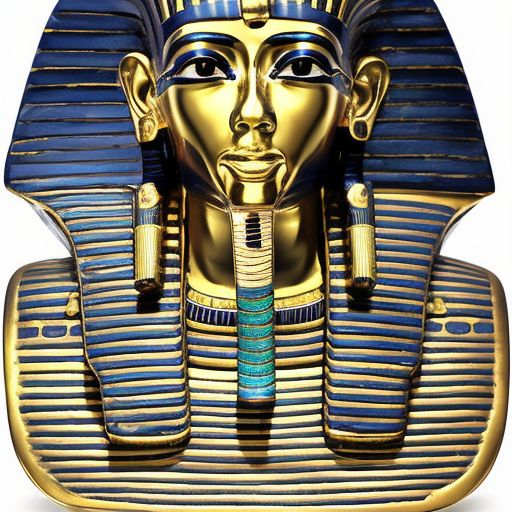|
|
It is argued against certain books, by virtuosi of moral alarm, that they depict vice as attractive. This recalls the king who hanged a judge for deciding that an archbishop was a mammal.
|

|
|
|
Why doesn't some patient drudge of a privat dozent compile a dictionary of the stable-names of the great? All show dogs and race horses, as everyone knows, have stable-names. On the list of entries a fast mare may appear as Czarina Ogla Fedorovna, but in the stable she is not that at all, nor even Czarina or Olga, but maybe Lil or Jennie. And a prize bulldog, Champion Zoroaster or Charlemagne XI. on the bench, may be plain Jack or Ponto en famille. So with celebrities of the genus homo. Huxley's official style and appellation was "The Right Hon. Thomas Henry Huxley, P. C., M. D., Ph. D., LL. D., D. C. L., D. Sc., F. R. S.," and his biographer tells us that he delighted in its rolling grandeur—but to his wife he was always Hal. Shakespeare, to his fellows of his Bankside, was Will, and perhaps Willie to Ann Hathaway. The Kaiser is another Willie: the late Czar so addressed him in their famous exchange of telegrams. The Czar himself was Nicky in those days, and no doubt remains Nicky to his intimates today. Edgar Allan Poe was always Eddie to his wife, and Mark Twain was always Youth to his. P. T. Barnum's stable-name was Taylor, his middle name; Charles Lamb's was Guy; Nietzsche's was Fritz; Whistler's was Jimmie; the late King Edward's was Bertie; Grover Cleveland's was Steve; J. Pierpont Morgan's was Jack; Dr. Wilson's is Tom.
Some given names are surrounded by a whole flotilla of stable-names. Henry, for example, is softened variously into Harry, Hen, Hank, Hal, Henny, Enery, On'ry and Heinie. Which did Ann Boleyn use when she cooed into the suspicious ear of Henry VIII.? To which did Henrik Ibsen answer at the domestic hearth? It is difficult to imagine his wife calling him Henrik: the name is harsh, clumsy, razor-edged. But did she make it Hen or Rik, or neither? What was Bismarck to the Fürstin, and to the mother he so vastly feared? Ottchen? Somehow it seems impossible. What was Grant to his wife? Surely not Ulysses! And Wolfgang Amadeus Mozart? And Rutherford B. Hayes? Was Robert Browning ever Bob? Was John Wesley ever Jack? Was Emmanuel Swendenborg ever Manny? Was Tadeusz Kosciusko ever Teddy?
A fair field of inquiry invites. Let some laborious assistant professor explore and chart it. There will be more of human nature in his report than in all the novels ever written.
|

|
|
|
The loud, preposterous moral crusades that so endlessly rock the republic—against the rum demon, against Sunday baseball, against Sunday moving-pictures, against dancing, against fornication, against the cigarette, against all things sinful and charming—these astounding Methodist jehads offer fat clinical material to the student of mobocracy. In the long run, nearly all of them must succeed, for the mob is eternally virtuous, and the only thing necessary to get it in favor of some new and super-oppressive law is to convince it that that law will be distasteful to the minority that it envies and hates. The poor numskull who is so horribly harrowed by Puritan pulpit-thumpers that he can't go to a ball game on Sunday afternoon without dreaming of hell and the devil all Sunday night is naturally envious of the fellow who can, and being envious of him, he hates him and is eager to destroy his offensive happiness. The farmer who works 18 hours a day and never gets a day off is envious of his farmhand who goes to the crossroads and barrels up on Saturday afternoon; hence the virulence of prohibition among the peasantry. The hard-working householder who, on some bitter evening, glances over the Saturday Evening Post for a square and honest look at his wife is envious of those gaudy drummers who go gallivanting about the country with scarlet girls; hence the Mann act. If these deviltries were equally open to all men, and all men were equally capable of appreciating them, their unpopularity would tend to wither.
I often think, indeed, that the prohibitionist tub-thumpers make a tactical mistake in dwelling too much upon the evils and horrors of alcohol, and not enough upon its delights. A few enlarged photographs of first-class bar-rooms, showing the rows of well-fed, well-dressed bibuli happily moored to the brass rails, their noses in fragrant mint and hops and their hands reaching out for free rations of olives, pretzels, cloves, pumpernickle, Bismarck herring, anchovies, schwartenmagen, wieners, Smithfield ham and dill pickles—such a gallery of contentment would probably do far more execution among the dismal shudra than all the current portraits of drunkards' livers. To vote for prohibition in the face of the liver portraits means to vote for the good of the other fellow, for even the oldest bibulomaniac always thinks that he himself will escape. This is an act of altruism almost impossible to the mob-man, whose selfishness is but little corrupted by the imagination that shows itself in his betters. His most austere renunciations represent no more than a matching of the joys of indulgence against the pains of hell; religion, to him, is little more than synthesized fear.... I venture that many a vote for prohibition comes from gentlemen who look longingly through swinging doors—and pass on in propitiation of Satan and their alert consorts, the lake of brimstone and the corrective broomstick....
|
|
|
|